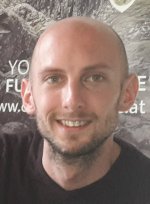
Florian Heigl
C.S.I. PhänoBiota
Research with new plant aarivals from all over the world
DURATION: 01.05.2020 - 30.04.2023
In a first-of-its-kind approach in Europe, pupils in the district of Liezen are researching and documenting the phenological development of invasive neophytes under the influence of climate change. With the help of experts, they develop and test modern, multilingual field research instruments and educational tools, thus laying the foundation for a long-term, nationwide Citizen Science network. The observations are used to make neophyte management in the region more efficient, supported by phenological information. The project results thus not only have educational value, but also tangible ecological benefits.
What is happening in the project or has already happened?
In C.S.I. PhenoBiota, kindergarten children and pupils from all school levels in the Liezen district explore the exciting phenological world of neophytes together and at eye level with scientists. Equipped with comprehensive, age-appropriate research tools, they observe and document the phenological phases of selected plant species throughout the year, relate them to the climate and learn to draw professional conclusions. What is phenology? A large part of the material in C.S.I. PhenoBiota is developed together with the pupils. For example, a NawiTech research box for kindergarten children is being developed to make the project's main topics accessible to our youngest participants in a playful way and with all their senses. In the Girls only! programming course, schoolgirls develop a simple app.
.jpg)
Pupils observe with the Nature Calendar App © Marco Schupfer
With the help of the already existing nature calendar app and the new neophyte feature, parents, grandparents, siblings and other interested Citizen Scientists should also be encouraged to participate in the project and share their phenological observations. How does the app work (in German)? However, there is also an analogue way to record the phenological phases using observation sheets. Click here to download the sheets (in German). At the end of the project, the collected data will be used to create phenomenal hubs for all participating school classes, with the help of which our young researchers can forecast the annual development of neophytes in their region.
In addition, the pupils have the opportunity to work out and examine their own scientific questions that are of burning interest to them on the topic.
In the project, the young researchers accompany the entire process from the planning, development and implementation of phenological data collection to data evaluation and application of the findings. They also actively help to communicate their results.
Click here to listen to the radio programmes:
- Projektvorstellung C.S.I.PhänoBiota
- Radiosendung Phänologischer Frühling
- Schüler:innen machen Radio – Neophyten und Co
- Radiosendung Phänologischer Sommer
In keeping with the theme, our experts also come to schools and provide exciting insights into their professions. Pupils visit researchers in the region and make valuable contacts for the future. Interested students have the opportunity to write pre-scientific Matura papers on the topic and to work closely with our experts.
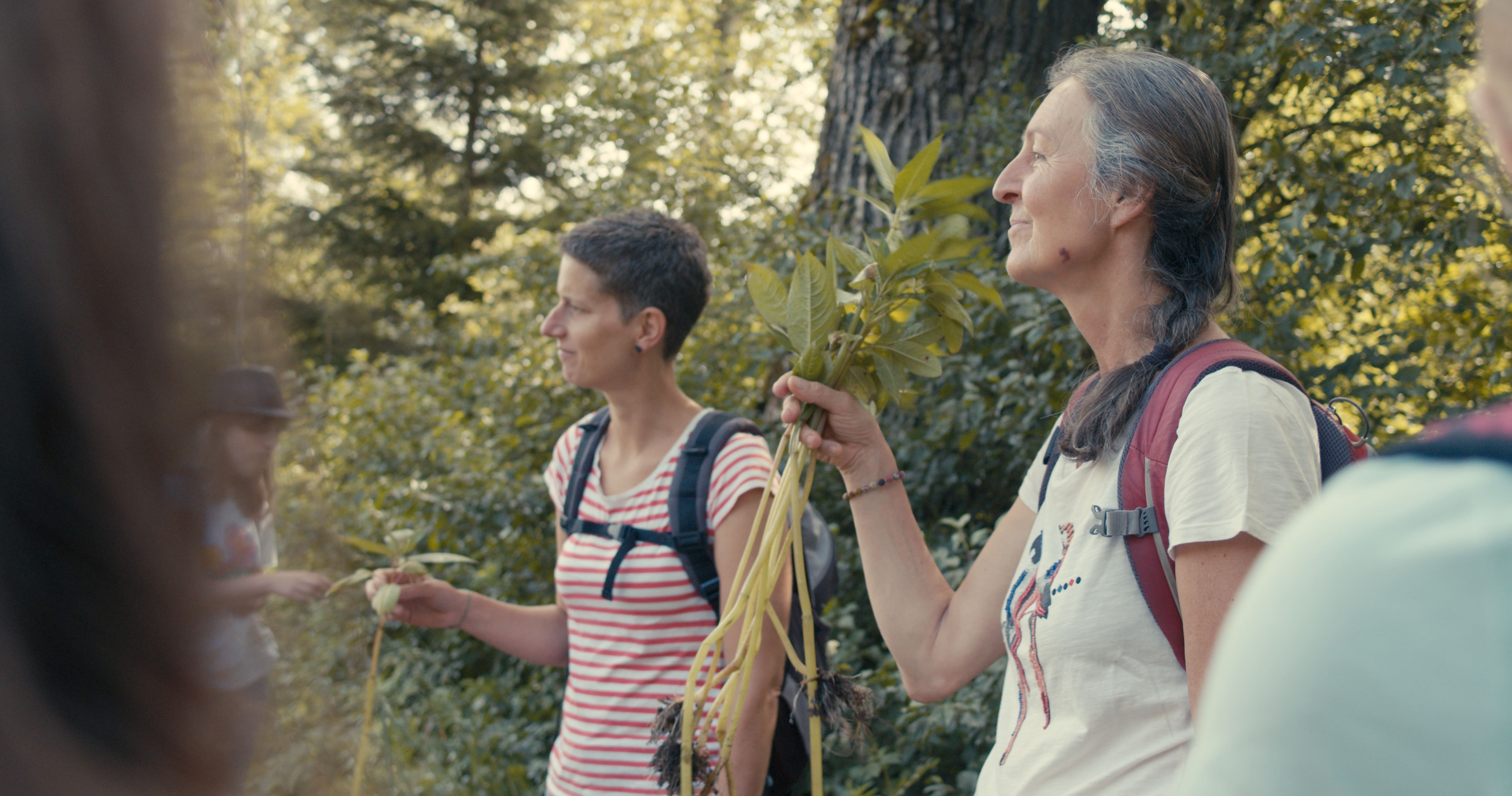
Excursion with the Naturschutzbund to the Trautenfels nature reserves © Marco Schupfer
Project goals
To get to know the complex of topics "Neophytes-Phenology-Climate Change" and to explore connections independently through innovative, interdisciplinary teaching methods. Enable and use access to NawiTech researchers in the region, e.g. for projects, internships, excursions, scientific work). Strengthen the role of children with a migration background through special tasks in the project and emphasise and use their competences.
Actively involve parents, grandparents, siblings and other interested Citizen Scientists in the project and get them enthusiastic about joint research.
Project partners
- Corporate partner:
- RML Regional Management Bezirk Liezen
- Scientific partners:
- Berg- und Naturwacht Steiermark
- Central Institute for Meteorology and Geodynamics
- Higher Federal Teaching and Research Institute for Agriculture Raumberg-Gumpenstein
- Educational institutions:
- WIKI Kindergarten Donnersbachwald
- Altenmarkt Nature Park Primary School
- St. Gallen Nature Park Primary School
- Primary School Aigen im Ennstal
- Secondary School Irdning
- Secondary School Stainach
- Admont Abbey Grammar School
- Federal Training College for Kindergarten Education Liezen
-nup-steirische-eisenwurzen-min.jpg)
Group photo of consortium partners © NUP Steirische Eisenwurzen
What opportunities does your project offer for educators who would like to apply for a cooperation grant?
We invite educational institutions from all school levels and from all over Austria to participate in the project through individual activities and to take a closer look at the fascinating phenological world of neophytes with us. All activities of C.S.I. PhenoBiota can also be implemented with cooperating schools. You are welcome to bring in your own ideas on the project topic and explore them together within the framework of the cooperation grants. Cooperation grants are awarded on a first come, first served basis.
Picture gallery
-
 Pupils sketching the neophytes © Marco Schupfer Pupils sketching the neophytes © Marco Schupfer
Pupils sketching the neophytes © Marco Schupfer Pupils sketching the neophytes © Marco Schupfer -
 Neophytes at first hand © Marco Schupfer Neophytes at first hand © Marco Schupfer
Neophytes at first hand © Marco Schupfer Neophytes at first hand © Marco Schupfer -
 Monitor neophytes and support science with the app © Marco Schupfer Monitor neophytes and support science with the app © Marco Schupfer
Monitor neophytes and support science with the app © Marco Schupfer Monitor neophytes and support science with the app © Marco Schupfer -
 Excursion to the HBFLA Raumberg-Gumpenstein © Marco Schupfer Excursion to the HBFLA Raumberg-Gumpenstein © Marco Schupfer
Excursion to the HBFLA Raumberg-Gumpenstein © Marco Schupfer Excursion to the HBFLA Raumberg-Gumpenstein © Marco Schupfer -
 Rhizome box to try out © Marco Schupfer Rhizome box to try out © Marco Schupfer
Rhizome box to try out © Marco Schupfer Rhizome box to try out © Marco Schupfer -
 Tracking neophytes © Sabina Kropitsch Tracking neophytes © Sabina Kropitsch
Tracking neophytes © Sabina Kropitsch Tracking neophytes © Sabina Kropitsch
https://www.citizen-science.at/en/conference/author/934-florianheigl?start=70#sigProIddc2722188d
Mit Unterstützung vom Bundesministerium für Klimaschutz, Umwelt, Energie, Mobilität, Innovation und Technologie sowie die Österreichische Forschungsförderungsgesellschaft (FFG) mit dem Förderschwerpunkt Talente regional.
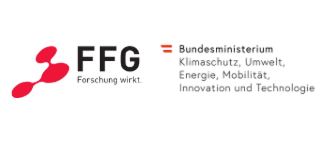

This project fulfilled version 1.1 of the quality criteria for citizen science projects on Österreich forscht.
COwLEARNING
Breaking the blame game:
COwLEARNING for sustainable beef and dairy supply
Our society faces grand challenges, such as mitigating climate change and adapting to its consequences, ensuring a healthy diet and maintaining cultural landscapes with high biodiversity. A sustainable agri-food industry addresses these challenges.
In Austria, with its high share of meadows and pastures, cattle husbandry is particularly important. Several aspects of dairy and beef supply are perceived as unsustainable. This is for instance its impact on climate change because during their digestion cattle release the climate-damaging greenhouse gas methane. Moreover, both animals and humans often face welfare problems because of difficult living and working conditions on farms and abattoirs. Many animals are kept in small spaces for the production of cheap products in a competitive market. Cattle are then prone to illness and their treatment with antibiotics may result in antibiotic resistance. In addition, our high consumption of meat causes health risks.
These and other problems in our beef and dairy supply are broadly discussed but many questions remain unanswered:
- What has driven past changes in dairy and beef supply and why have sustainability innovations (not) been implemented?
- How do alternative dairy/beef chains compare in terms of animal and human welfare, the environment, socio-economic characteristics, and potential for growth?
- What are broadly acceptable and feasible changes for the future?
The project COwLEARNING combines scientific knowledge from the universities with the knowledge of practitioners in farming, processing, retail, gastronomy and consumption*. Together, we search for possible ways of change and thereby consider different innovative practices. This may include, for instance, pasture-based feeding, cow-calf contact systems (the calf stays with the cow for longer time after birth), mobile abattoirs, cow-sharing (animals are slaughtered only when all their parts are sold), milk and beef substitutes.
With a farm-to-fork assessment, we compare these innovations from the farmer to the consumer. Together with practitioners, we develop scenarios, this means pictures of the future showing alternative developments. In addition, we develop serious games to convey the topic in a playful way. With these approaches we want to stimulate learning and provide spaces to experiment with more sustainable beef and dairy supply.
*Participation is limited to these stakeholder groups and therefore closed.
Citizen Science Seminar
In January 2024, poject coordinator Marianne Penker held a lecture about the project (in German) as part of the lecture series "Citizen Science Seminar" at BOKU University.
Picture gallery
-
 Common Vision © Jana Wiese Common Vision © Jana Wiese
Common Vision © Jana Wiese Common Vision © Jana Wiese -
 Projectstart © FWF-LuizaPuiu Projectstart © FWF-LuizaPuiu
Projectstart © FWF-LuizaPuiu Projectstart © FWF-LuizaPuiu -
 Transdisciplinary Team © COwLEARNING Transdisciplinary Team © COwLEARNING
Transdisciplinary Team © COwLEARNING Transdisciplinary Team © COwLEARNING
https://www.citizen-science.at/en/conference/author/934-florianheigl?start=70#sigProIda65ba1cecd
This project fulfils version 1.1 of the quality criteria for citizen science projects on Österreich forscht.
Austrian National Library
As the central scientific library of the Republic of Austria, the Austrian National Library looks back on a history rich in tradition dating back to the 14th century. Due to its unique collections, it is one of the most renowned libraries worldwide. One of its main tasks is the collection and archiving of publications published in Austria, including the Austrian web space. Through comprehensive digitisation of its collections and the wide range of digital services it offers, it contributes to the democratisation of knowledge.
The Austrian National Library sees its users as active contributors. It therefore supports Citizen Science and will participate even more strongly than before in joint projects and project proposals. For this purpose, it will also provide suitable data from its digitised collections. One crowdsourcing initiative, "Austria from the air", has already been successfully completed.
Podcast: OECSK Report
Listen to the new podcast episode of "Wissen macht Leute": A report from the Austrian Citizen Science Conference in Dornbirn.
Medical University of Innsbruck
We are very pleased to welcome the Medical University of Innsbruck as a partner in the Citizen Science Network Austria.
Camaliot
Check out the new project Camaliot and help for example to improve the prediction of extreme weather events
Camaliot
The CAMALIOT (Application of Machine Learning Technology for GNSS IoT Data Fusion) project
The CAMALIOT project integrates data from the Internet of Things (IoT), including smartphones, and traditional Global Navigation Satellite System (GNSS) data sources to leverage Big Data, Data Fusion and Machine Learning technologies to to demonstrate how these data can be used in different scientific applications.
Taking advantage of dual frequency chipsets now available in some Android mobile phones, the CAMALIOT Android app logs data from all available satellites. The purpose of the mobile app is to collect as much raw GNSS data as possible from as many locations around the world using crowdsourcing. The data are being ingested into machine learning algorithms for determination of tropospheric parameters that support weather forecasts on Earth and for the monitoring of space weather, important for satellite operations and communication. More information about the scientific results can be found on the www.camaliot.org website. A paper describing the app and the data collection campaigns can be found here in the International Journal of Digital Earth.
Although the CAMALIOT project funding is now finished, we are still collecting data through the CAMALIOT mobile app for the acquisition of raw, crowdsourced GNSS data to support ongoing scientific research.
The project has three main partners: (i) the European Space Agency, who funded the project and provided scientific support; (ii) ETH Zurich, who led the project and have developed the machine learning models for weather prediction; and (iii) the International Institute for Applied Systems Analysis (IIASA), who developed the CAMALIOT crowdsourcing app and have led the data collection as outlined on the project's website.
This project fulfils version 1.1 of the quality criteria for citizen science projects on Österreich forscht.
Podcast Episode 2
Listen to the new podcast episode now: https://www.citizen-science.at/blog/radio-von-gottesanbeterin-baumschlaefer-und-fruehjahrsbluehern
Team
We at Österreich forscht value good cooperation and enjoy working as a team, as we complement each other well. Here, all our staff members introduce themselves, their interests and hobbies, and describe what they particularly appreciate about Citizen Science and their work at Österreich forscht. We hope you enjoy getting to know our team members.
Daniel Dörler
Founder and coordinator of Österreich forscht
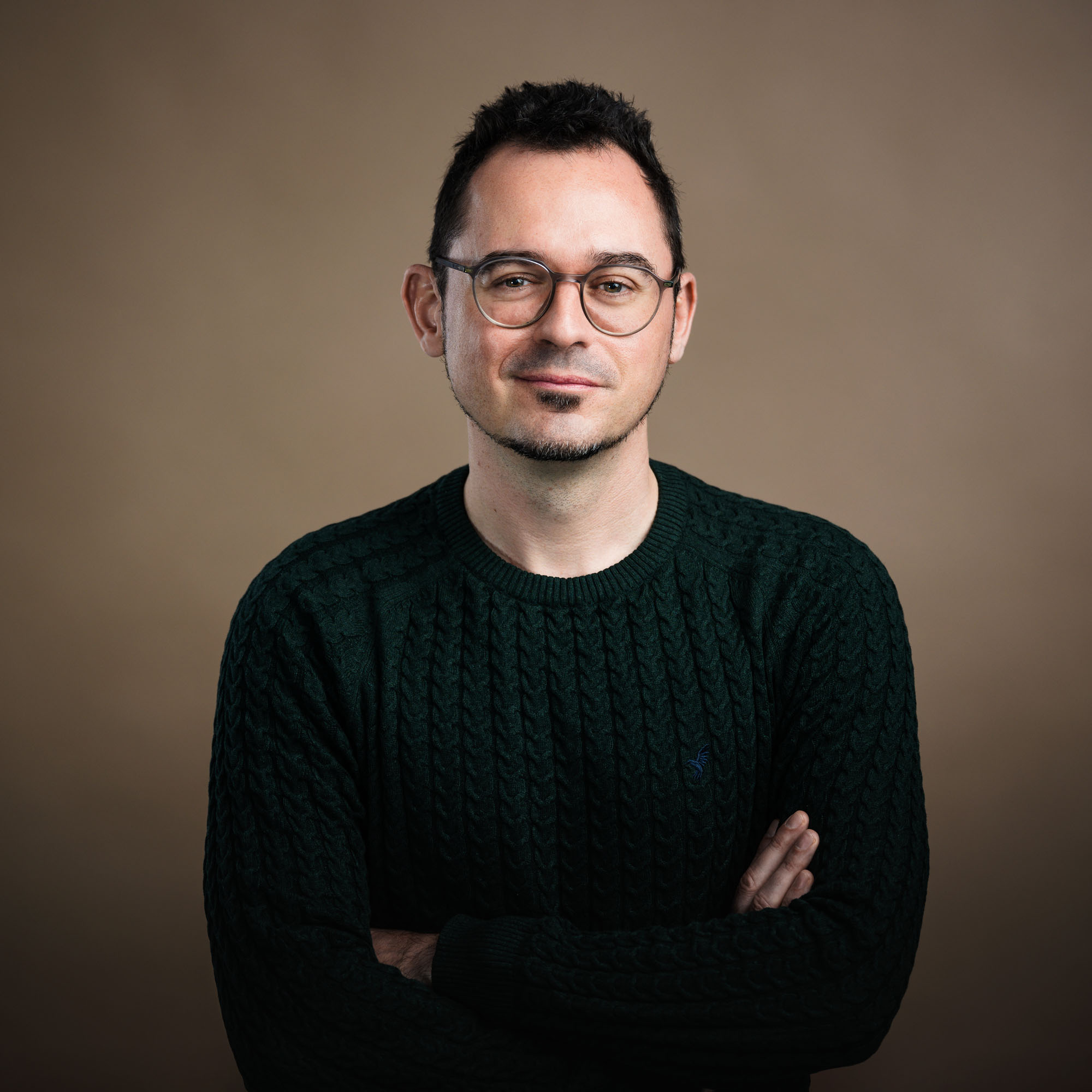
Daniel is a zoologist and already planned to study zoology as a child. He realised his career aspiration and graduated from the University of Vienna in zoology with a focus on evolutionary biology. After a short break in the private sector, he completed his doctorate in ecology at BOKU University, where he first came into contact with Citizen Science.
At Österreich forscht, he is responsible for updating platform content, (re)designing texts and platform areas, and posts regularly on Facebook. Daniel writes on the blog and organises and coordinates the events of Österreich forscht. He also gives lectures and presentations on citizen science, conducts courses and training sessions on citizen science and is also very well networked internationally in the field of citizen science through his role as head of a European working group on Citizen Science Networks.
What excites me about citizen science .... the opportunity of working together with a group of committed people to discover things that could not be discovered without citizen science. For me, citizen science is a group experience that is fun, sometimes challenging and opens up new perspectives.
What I like about my work is ... the variety. In my role as coordinator of Österreich forscht and researcher at BOKU, I am always at the interface between science and society, and I also have insights into many different research areas and organisations, which allows me to constantly gain new experiences.
I recharge my batteries ... on the one hand through direct (and hopefully positive) feedback during presentations and lectures, and on the other hand through regular time off.
The best balance to work for me is ... sports, quality time with friends and travelling.
I find inspiration ... mostly while running, when I let my thoughts run freely and don't think about anything in particular.
Florian Heigl
Founder and coordinator of Österreich forscht
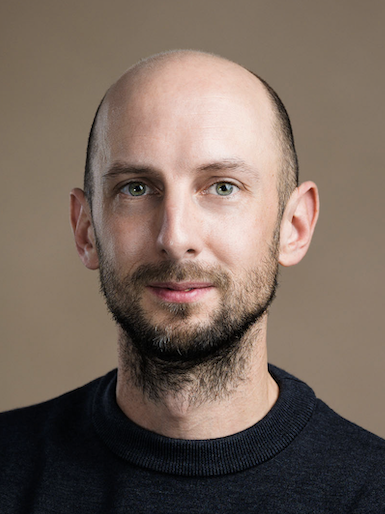
Florian is an agroecologist, specialising in road ecology and citizen science during his PhD at BOKU University. During his doctorate, he founded the platform Österreich forscht together with Daniel and has been developing it ever since.
At Österreich forscht, Florian is primarily responsible for strategic development and coordination. He takes care of platform content, writes on the blog and manages the Österreich forscht LinkedIn account. He also conducts research in the Roadkill project, teaches several courses and training sessions on citizen science at BOKU and leads working groups in the Citizen Science Network Austria.
When Florian is not working on citizen science, he can be found in the Waldviertel with his family, either playing with his children, in the garden or on the water with his kayak.
What excites me about citizen science is ... the combination of scientific theory and practice as well as the exchange with wider society. Through this exchange, I hope that we can solve problems in our environment together and with scientific methods.
What I like about my work is ... the diverse fields of activity and the constant change of perspectives.
I recharge my batteries ... in the garden or on the water.
The best balance to work for me is ... playing with the children and doing sports in nature.
I find inspiration ... in nature.
Barbara Heinisch
Project assistant
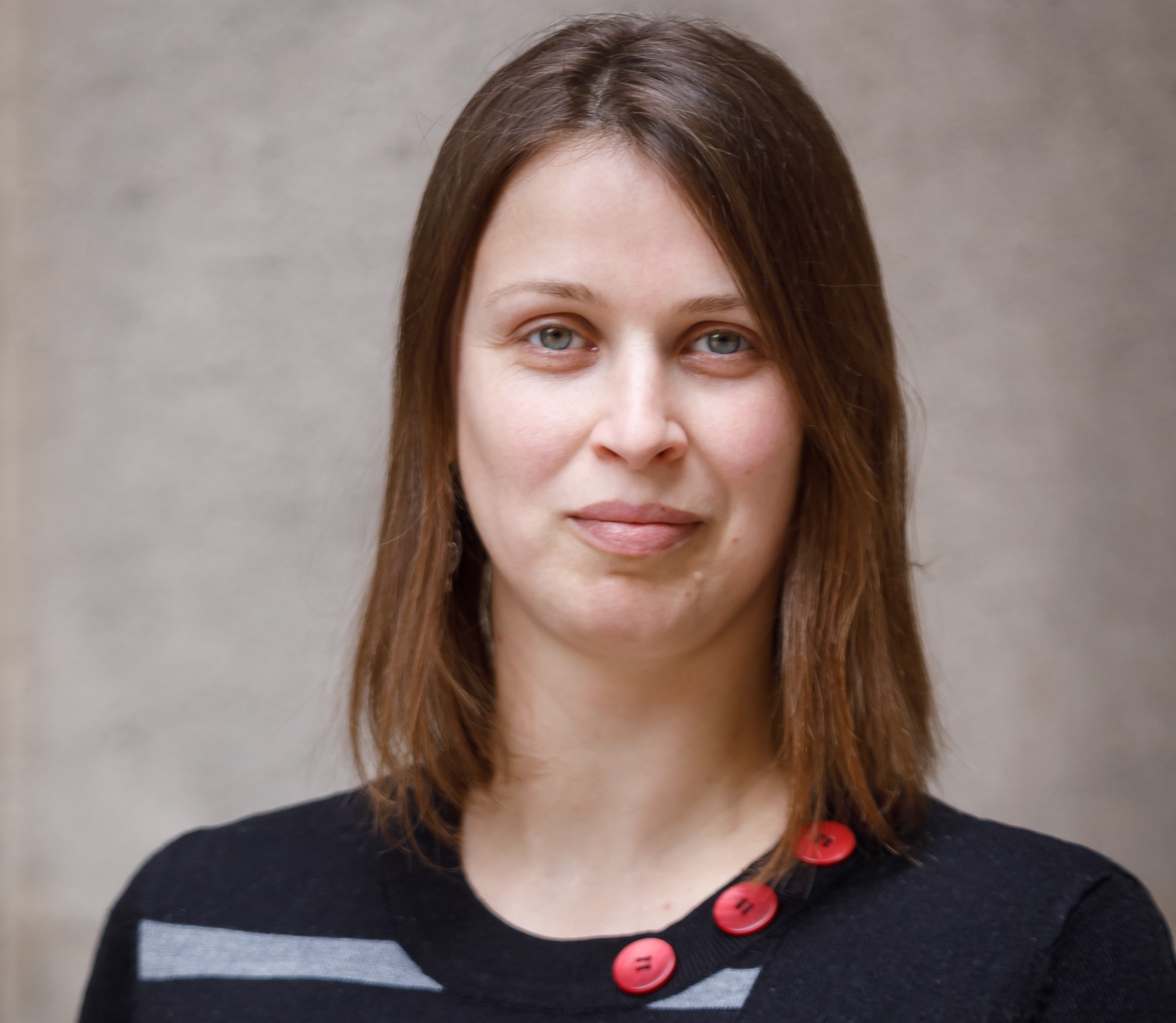 Barbara does her research and teachings in the field of specialised translation and also works as a translator and terminologist at the University of Vienna. She is enthusiastic about Citizen Science from different perspectives (both in theory and practice as well as on a strategic level). During her doctorate, she already gained her first experience with citizen science as a project coordinator and dealt extensively with the "translation" aspect of science, which also led her to BOKU University.
Barbara does her research and teachings in the field of specialised translation and also works as a translator and terminologist at the University of Vienna. She is enthusiastic about Citizen Science from different perspectives (both in theory and practice as well as on a strategic level). During her doctorate, she already gained her first experience with citizen science as a project coordinator and dealt extensively with the "translation" aspect of science, which also led her to BOKU University.
At Österreich forscht, she is implementing the Citizen Science strategy of Österreich forscht together with Daniel and Florian. To this end, she will work with the partners to implement activities that increase cooperation between projects and the visibility of Österreich forscht.
What excites me about Citizen Science is ... developing science further, being able to provide an insight into research and, ideally, using research to achieve an impact outside of science.
What I like about my work is ... not just looking at Citizen Science in Austria from the perspective of theory and practice, but being able to develop and drive it forward myself.
I recharge my batteries ... in the countryside.
The best balance to work for me is ... not thinking about work ?.
I find inspiration ... through new and unknown things, as well as different perspectives.
Meret Siemen
Student Assistant
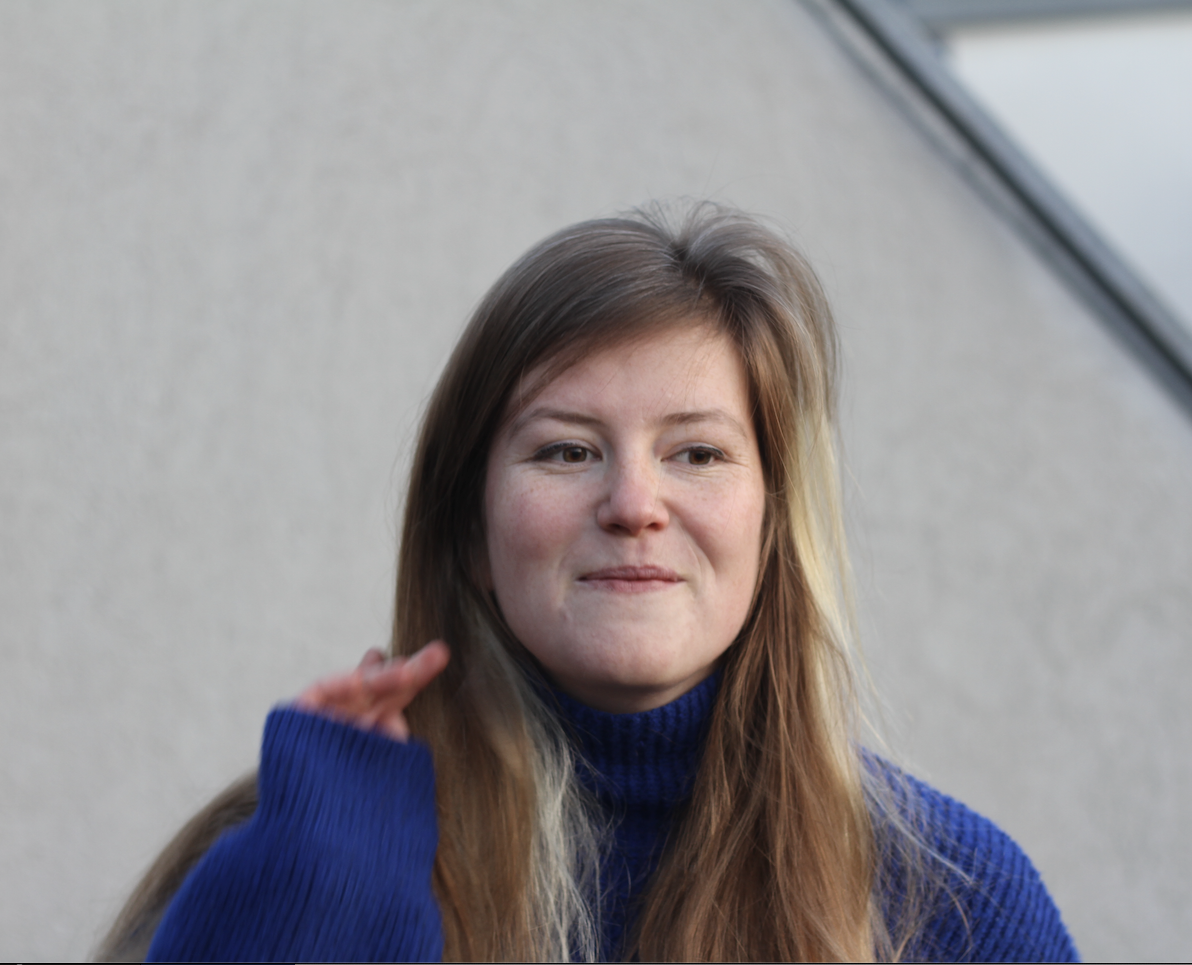 Meret Siemen is pursuing a Master's degree in Philosophy and feels very comfortable at BOKU despite her love for the humanities. After some forays into the art and cultural sector, working in theater, and spending several years at the Chair of Philosophy and Ethics in School and Society at the University of Vienna, she has finally extended her feelers towards science journalism. With years of experience in community radio, she can now combine her passion for asking questions and learning with journalistic practice.
Meret Siemen is pursuing a Master's degree in Philosophy and feels very comfortable at BOKU despite her love for the humanities. After some forays into the art and cultural sector, working in theater, and spending several years at the Chair of Philosophy and Ethics in School and Society at the University of Vienna, she has finally extended her feelers towards science journalism. With years of experience in community radio, she can now combine her passion for asking questions and learning with journalistic practice.
At Österreich forscht, she is responsible for producing the Citizen Science podcast "Wissen macht Leute," which she took over from Alina Hauke in early 2025. She ensures that all content on the website is up to date and meets the criteria for accessibility and gender-inclusive language. Additionally, she supports Florian and Daniel with other administrative tasks, social media, and the blog.
What excites me about Citizen Science ... is the respectful (and often enthusiastic!) engagement and relationship between academics and non-academics. The mutual learning process, which, in addition to scientific results, also brings joy.
What I like about my work is ... observing how much joy science can bring to people. Also: The friendly interaction, curiosity and openness, and that I'm allowed to ask anything.
I recharge my energy ... by swimming, making collages, or creating music.
The best balance to work for me is ... meeting friends, listening to the radio, reading, cooking, and going on vacation.
I find inspiration ... actually everywhere. Just open your eyes and prick up your ears.
Alina Hauke
Project assistant
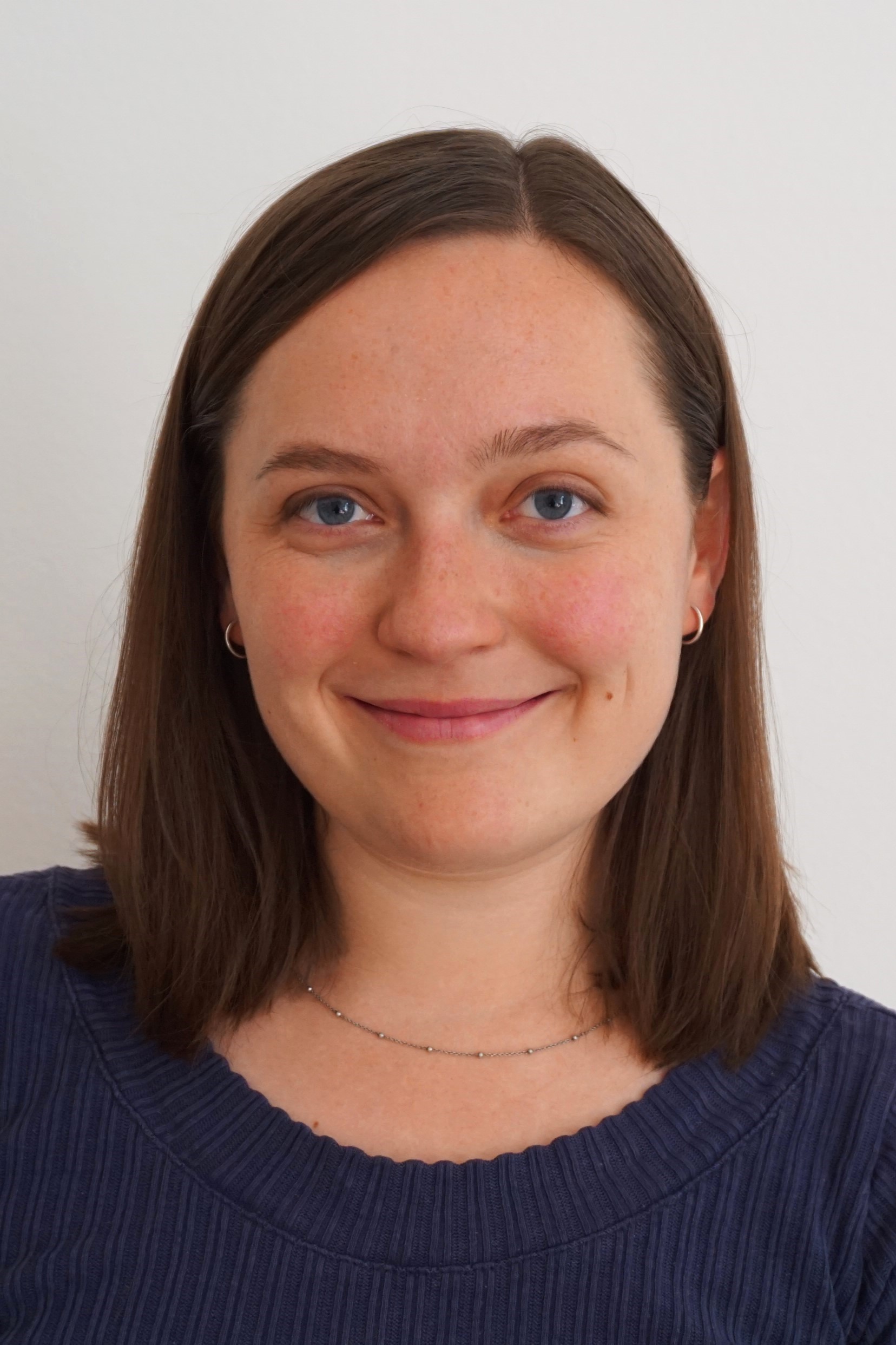
For Österreich forscht, Alina established the Citizen Science podcast "Wissen macht Leute" with support from Lisa Recnik and produced it until the end of 2024. Since the beginning of 2025, Alina has been organizing the "Leading Lights" project, which supports and promotes early-career scientists at BOKU University in science communication.
What excites me about Citizen Science ... is the involvement of many different people, the open and inclusive approach, as well as the effort to make science more tangible.
What I like about my work is ... coordinating, my independence, and my creative freedom.
I recharge my energy ... through exchanges with dear people, in nature, and through sports.
The best balance to work for me is ... going outside, climbing, reading, and realizing creative projects.
I find inspiration ... while traveling, listening to music, and taking walks.
City Nature Challenges in Austria
Every observation counts!
The City Nature Challenge (short: CNC) is an annual nature competition between regions that takes place in spring (usually at the end of April, beginning of May) and is held simultaneously in various cities and regions worldwide. On four consecutive days, people around the world document the diversity of wild animal, plant and fungi species in their region using photos and sound recordings and share them on iNaturalist. Together with others the observations are then identified to species level on iNaturalist.
The CNC was invented by the Natural History Museum of Los Angeles County and the California Academy of Sciences in 2016 and is organized by them since then annually. 2018 the CNC went globally, and hundreds of cities and regions are participating since then in this friendly challenge every year: Which region makes the most observations? Which region has the most species? Which region can motivate the most participants?
All observation of wild organisms in the participating regions count!
Since 2020, several Austrian cities and region are also participating in this international event. The CNC is organized by each of the participating cities or regions on their own. The “City Nature Challenges in Austria” project acts as an umbrella project for these participating cities and regions in Austria.
The aim of the CNC is to reacquaint people with their local biodiversity, to arouse curiosity and to discover nature on their doorstep. You can use the observation platform iNaturalist to exchange ideas with other nature lovers and learn and improve your knowledge of the species by identifying species together with others. This data helps research, administration, and nature conservation: it contributes to a better understanding of the status of species and their distribution in Austria. Due to the large number of observations, robust data on phenology can be obtained, area expansions of invasive species or of rare/sensitive species can be detected, and rediscoveries and new finds are also possible.
When?
The next City Nature Challenge takes place from April 25th to 28th 2025. Planning for the 2026 CNC event already starts in autumn 2025.
Participate
Everyone can participate in the City Nature Challenge by making observations or help identifying observations to species level! No registration to the project is necessary. All you need is a camera (smartphone or digicam) and a free iNaturalist account for uploading the photos. In Salzburg and Vorarlberg, Observation.org and the ObsIdentify app are used to collect data. The use of both platforms is free of charge.
Now, simply take photos of wild animal, plant or fungi species between April 25th and 28th 2025 in the participating regions and post them on iNaturalist. That is all it takes for your observation to count in the City Nature Challenge!
You can also help identify species on iNaturalist submitted during the CNC. Or simply tell your family, friends or colleagues that the CNC is happening in their region.
iNaturalist is a citizen science platform where everyone can post images or sound recordings of their species observations and identify it together with other users. It is run by the California Academy of Sciences and the National Geographic Society. Beside the documentation of biodiversity users can also get in exchange with each other over the platform.
In Austria, you can take part in the City Nature Challenge in 2025 in the following regions:
- Amstetten – Waidhofen/Ybbs
- Elsbeere Wienerwald
- Graz bis Vulkanland
- Industrieviertel
- Innsbruck
- Krems – Wachau – Melk
- Marchegg
- Mittelkärnten
- Nationalparkregion Gesäuse
- Neusiedler See/Seewinkel
- Salzburg (via observation.org)
- St. Pölten
- Vorarlberg (via observation.org)
- Wien
What’s with the data?
The observations reported to iNaturalist during the course of the CNC can be viewed and used by any user of the observation platform. So they are freely available. In addition, verified observations (which have the status of "research grade") are shared with GBIF "Global Biodiversity Information Facility" – an international biodiversity database – used by scientists worldwide for their research. In addition, the observations are also available in the Austrian Biodiversity Atlas with a slight delay.
Through your iNaturalist account, you can control how your observations and photos may be used (by providing a Creative Commons license) and you can also remove your observations at any time by deleting your account.
Podcast episode
In April 2023, coordinator of the region Krems-Wachau-Melk, Tanja Lumetsberger, presented futher insights and details about the City Nature Challenge in our podcast Wissen macht Leute. You can listen to the episode here (in German).
Further information
Further information on the City Nature Challenges in Austria and how you can be part of it can be found on our project website.
Information on the official international project can be found at www.citynaturechallenge.org (in English).
Implementing organisations
- Haus der Natur Salzburg
- Haus für Natur, Museum Niederösterreich
- inatura Vorarlberg
- Institut für Biologie, Universität Graz
- Nationalpark Gesäuse
- Nationalpark Neusiedler See – Seewinkel
- Naturhistorisches Museum Wien
- Naturwissenschaftlicher Verein für Kärnten
- Paris-Lodron Universität Salzburg
- Tiroler Landesmuseen
- Universalmuseum Joanneum
- Universität für Weiterbildung Krems
The City Nature Challenge is organized on a global scale by the Natural History Museum of Los Angeles County and the California Academy of Sciences.
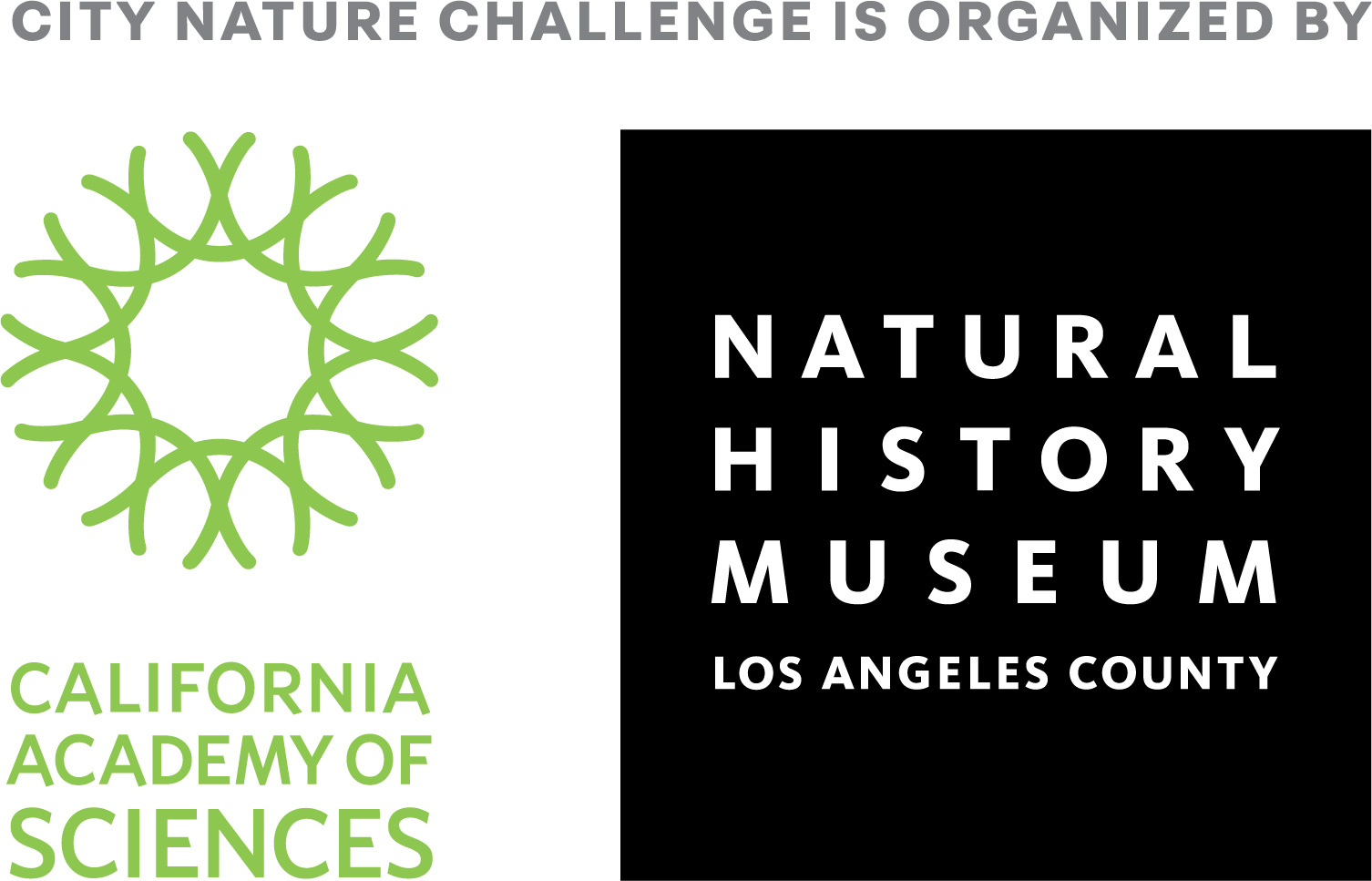
This project fulfils version 1.1 of the quality criteria for citizen science projects on Österreich forscht.







